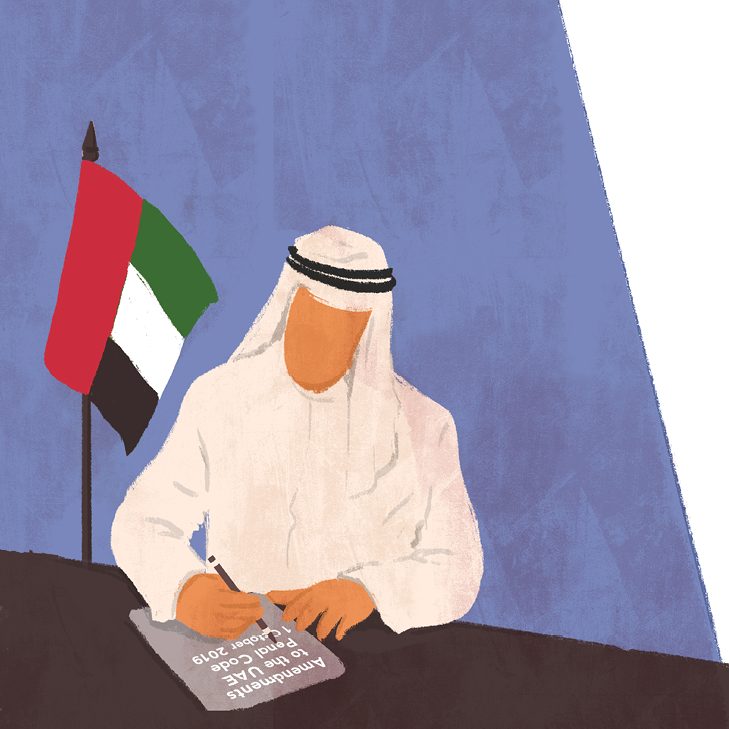- Arbitration
- Banking & Finance
- Capital Markets
- Commercial
- Competition
- Construction & Infrastructure
- Corporate / Mergers & Acquisitions
- Corporate Services
- Corporate Structuring
- Digital & Data
- Dispute Resolution
- Employment & Incentives
- Family Business & Private Wealth
- Innovation, Patents & Industrial Property (3IP)
- Insurance
Find a Lawyer
Book an appointment with us, or search the directory to find the right lawyer for you directly through the app.
Find out more
Level Up: Unlocking Financial Potential In The Middle East
Welcome to this edition of Law Update, where we focus on the ever-evolving landscape of financial services regulation across the region. As the financial markets in the region continue to grow and diversify, this issue provides timely insights into the key regulatory developments shaping banking, investment, insolvency, and emerging technologies.


2025 is set to be a game-changer for the MENA region, with legal and regulatory shifts from 2024 continuing to reshape its economic landscape. Saudi Arabia, the UAE, Egypt, Iraq, Qatar, and Bahrain are all implementing groundbreaking reforms in sustainable financing, investment laws, labor regulations, and dispute resolution. As the region positions itself for deeper global integration, businesses must adapt to a rapidly evolving legal environment.
Our Eyes on 2025 publication provides essential insights and practical guidance on the key legal updates shaping the year ahead—equipping you with the knowledge to stay ahead in this dynamic market.
The leading law firm in the Middle East & North Africa region.
A complete spectrum of legal services across jurisdictions in the Middle East & North Africa.
-
Practices
- All Practices
- Banking & Finance
- Capital Markets
- Commercial
- Competition
- Construction & Infrastructure
- Corporate / Mergers & Acquisitions
- Corporate Services
- Corporate Structuring
-
Sectors
-
Country Groups
-
Client Solutions
Today's news and tomorrow's trends from around the region.
17 offices across the Middle East & North Africa.
Our Services
 Back
Back
-
Practices
- All Practices
- Banking & Finance
- Capital Markets
- Commercial
- Competition
- Construction & Infrastructure
- Corporate / Mergers & Acquisitions
- Corporate Services
- Corporate Structuring
- Digital & Data
- Dispute Resolution
- Employment & Incentives
- Family Business & Private Wealth
- Innovation, Patents & Industrial Property (3IP)
- Insurance
- Intellectual Property
- Legislative Drafting
- Private Client Services
- Private Equity
- Private Notary
- Projects
- Real Estate
- Regulatory
- Tax
- Turnaround, Restructuring & Insolvency
- White Collar Crime & Investigations
-
Sectors
-
Country Groups
-
Client Solutions

- Law Firm
- /
- Insights
- /
- Law Update
- /
- October 2019
- /
- Amendments to the UAE Penal Code: Three Key Changes you should Know
Amendments to the UAE Penal Code: Three Key Changes you should Know
Mohamed Gaber Abdelsabour - Senior Counsel - Litigation
 In line with the vision and direction of H.E. Sheikh Mohammed Bin Rashid Al Maktoum, Vice President and Prime Minister of the UAE and Ruler of the Emirate of Dubai, that justice should be administered expeditiously and efficiently, the UAE Attorney General issued a new decree dated 1 October 2019 on the penal order (‘Order’).
In line with the vision and direction of H.E. Sheikh Mohammed Bin Rashid Al Maktoum, Vice President and Prime Minister of the UAE and Ruler of the Emirate of Dubai, that justice should be administered expeditiously and efficiently, the UAE Attorney General issued a new decree dated 1 October 2019 on the penal order (‘Order’).
The Order consists of five articles specifying the criminal offences and penalties that can be issued by public prosecutors according to their jurisdiction and grades. The Order makes a number of substantial amendments to the administration of criminal justice in the UAE, three of which are flagged below:
1. More offences to be dealt with summarily by public prosecutors
A number of crimes listed in the Order may be disposed of by public prosecutors rather than by transferring them to the criminal court. This measure is aimed at avoiding lengthy and complex procedures before the criminal courts, with a view to reducing the load of criminal cases before the UAE criminal courts which ultimately may result in speeding up the criminal justice process.
The Order addresses approximately 30 offences, including defamation, traffic and bounced cheques offences, and authorises members of the Department of Public Prosecution whose grade is not lower than a senior prosecutor to issue penal orders.
A limited form of appeal is included: members of the Department of Public Prosecution whose grade is not lower than that of a chief prosecutor may amend or revoke any penal order within seven days of the date of issuance. The Case Examination and Follow-up Department at the Attorney General’s office is empowered to consider mitigating the penal order and, if appropriate, to revoke or replace a penalty with community service.
2. More sentences to be mitigated
The Order significantly mitigates or reduces a number of sentences mandated under the UAE Penal Code (Law No. 3 of 1987). The Order includes 20 offences governed by the Penal Code 18 of which had sentences of imprisonment and/or fine. However, under the Order such offences are now punishable by only a fine which should not exceed a prescribed limit. The wording of Articles 1 and 2 of the Order leave open the interpretation that it is subject to the public prosecutor’s discretion to adjudicate offences in accordance with the Order’s provisions. As such, the public prosecutor may have recourse to those provisions or alternatively follow the regular route of transferring offences to the competent criminal court. It is pertinent to note, however, that the Order is silent on any criteria that should be applied by public prosecutors when exercising their discretion.
3. Lower penalties for dishonoured cheques
Bounced cheques of an amount not exceeding AED 200,000 (circa US$54,500) are included within the ambit of the Order. Article 3(16) states that fines of AED 10,000 (circa US$27,22) will apply to persons issuing cheques in bad faith, without sufficient funds available and provided the cheque amount is greater than AED 100,000 (circa US$27,229) but not exceeding AED 200,000 (circa US$54,500).
The fine amount shall be reduced as a pro-rata amount of the bounced cheque. If the cheque amount does not exceed AED 50,000 (circa US$13,610), the fine will be AED 2,000 (circa US$545). If it is greater than AED50,000 (US$13,610) but does not exceed AED 100,000 (US$27,229), the fine will be AED 5,000 (circa US$1,360). This offence is also punishable under Article 401 of the Penal Code by imprisonment of up to three years or a fine (between AED 1,000 (circa US$272) and AED 100,00 (circa US$27,229).
In practice, where there are several cheques related to the same parties and their aggregate value exceeds AED 200,000 (circa US$54,500), the Department of Public Prosecution will consolidate such offences and will refer them to the Criminal Court (although this practice is not stipulated in the Order).
A Fine is not a Remedy to the Victim
A fine for a dishonoured cheque is a criminal punishment but it is not necessarily a remedy to the victim creditor. The public prosecution will directly enforce any fine imposed through the available enforcement measures. This will leave the creditor with no remedy other than filing a civil suit with a view to obtaining a judgment enforcing the debtor to pay the cheque amount.
Typically, creditors should go through the normal civil proceedings. Under the Civil Procedure Law (Law No. 11 of 2015) and the Executive Regulations of the Civil Procedure Law No. 57 of 2018, a creditor has the right to seek adjudication of its application on a summary basis (i.e. before the fast-track court) by introducing a claim identifying the dishonoured cheque as a debt instrument. However, many courts in the UAE that are rejecting this approach and instead prefer to examine the merits of the claims rather determining them on a summary basis, means a lengthier process. The Dubai Civil Courts tend to deal with such claims on a summary basis.
Deterrent Penalties
It has become evident that cheques play a vital role in the national economy, with most transactions involving a cheque being issued. Accordingly, it is essential that law enforcement should maintain credibility and reliability of cheques as a proper and authentic payment method. As such, it is important to apply severe penalties to offenders otherwise, the reliability of such instrument would be prejudiced.
Conclusion
The shift in policy in relation to bounced cheques marked in the Order may make it less likely that defendant debtors will voluntarily pay the sums due under the cheques, given the reduced risk of jail. A creditor can protect its position in such circumstances by taking a number of simple steps. If a criminal complaint is contemplated, it should be filed as early as possible. Once a criminal complaint has been filed, frequently follow up with the Public Prosecution as to whether any decision on dealing with the complaint has been made, particularly in relation to whether the complaint will be dealt with under the process described in the Order or whether it will be referred to the Criminal Court. Finally, if the Public Prosecution decides to deal with the complaint under the process described in the Order, a creditor should proceed immediately to file a civil claim to seek recovery of the sums due.
Al Tamimi & Company’s Litigation team regularly advises on civil, commercial and criminal liability transactions. For further information please contact Mohamed Abdelsabour (m.abdelsabour@tamimi.com).
Stay updated
To learn more about our services and get the latest legal insights from across the Middle East and North Africa region, click on the link below.


